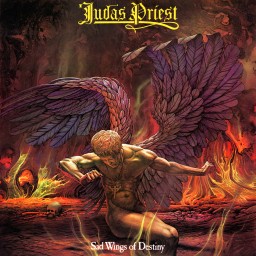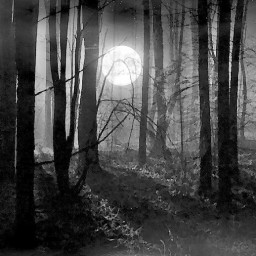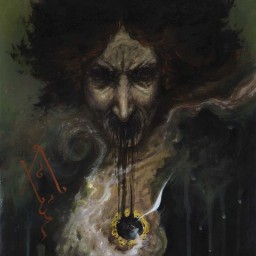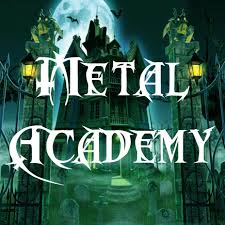Reviews list for Judas Priest - Sad Wings of Destiny (1976)
Judas Priest's Sad Wings of Destiny was the second most important record after Sabbath's Paranoid in my personal journey through the metal universe. After hearing a schoolfriend's copy of Stained Class I went out and bought Sad Wings (we traded taped copies afterwards) and then I absolutely played it to death. My view back then was that a day without Sad Wings was a day without sunshine! Nowadays I prevaricate between those two albums as to which I think is the better, but both are classics and this in particular is chock-full of metal anthems - Victim of Changes, The Ripper, Tyrant and Genocide are all instantly recognised by most metalheads.
Interestingly, the released tracklisting is not what the band originally intended. Somewhere the sides were mixed up for the original release and they have stuck with it ever since, but the album was intended to start with Prelude and end with the Dreamer Deceiver / Deceiver couplet. When listened to in that order, the tracklisting does make more sense and flows better, I think most people would agree.
At this point, SWoD being Priest's second album, the band had not yet been transformed into the metal gods they would later become (that came with the release of 1979's Killing Machine) and they still retained a little of the rock ethic from their debut, although at a reduced level. That isn't meant in any way detrimentally as I think it gave the album a greater variety than an all-out metal assault would have done. That said, the metal is the real draw here, but I think it is at it's best when accentuated by a bit of a build up, such as when Prelude builds it's pomp and circumstance into the release of the killer opening riff of Tyrant or when the balladic Dreamer Deceiver builds during it's own runtime and then bursts out into the riff of Deceiver.The twin guitar attack was fairly unusual at the time and Glenn and KK's fretwork really set Priest apart and was the big revolution in metal music that had enormous influence on future metal heroes from Iron Maiden to Metallica and Slayer. Of course there was also Rob Halford's incredible vocal range which few have ever been able to match and was the other defining element of Priest's sound which set them apart from and above their peers.
Priest were well and truly on the rise at this point, which coincided with Sabbath's descent from the metal mountain peak and were really the only game in town, true heavy metal-wise, Motörhead's debut still being over a year in the future. This metal vacuum certainly did Priest no harm as it enabled them, over the course of this and the succeeding three albums, to pretty much define the heavy metal archetype. I know many, particularly those not around during the Seventies, cite Painkiller or even Defenders of the Faith as Priest's peak and those are indeed fine albums, but for me the run of albums from this to Killing Machine were their pinnacle and Sad Wings is a hell of a way to kick off such a run of releases. Not for nothing does the triplet of tracks from this, Victim of Changes, Genocide and Tyrant climax the 1980 live album - it is because they are absolute killer metal anthems and live they will rip your fucking head off!
Judas Priest is a band that's gone through a number of different evolutions over their lifetime, especially for a band so important in the evolution of an entire genre of music. Different people will often think of very distinct things when they hear the band's name: to some it means the hard rocking, leather studded 80s, to others the sheer fury and boundless energy of Painkiller, and to some it calls to mind the formative 70s, where both Priest and heavy metal itself were still developing.
That's always been my favourite era of the band. It's where their songcraft was truly at its strongest, with cheesy fun tempered by smart, effective writing and nice variety in styles. And Sad Wings is where that approach was properly birthed. Rocka Rolla may have been their actual debut full-length, but it's often forgotten for good reason, this was where Priest really came into their own.
The sense of theatricality is king here, and, complimented perfectly by Halford's glorious vocals, is what truly sets Sad Wings apart. The band just sound like they're having such a good time, and it feels wrong not to join in with it. Halford is a rock 'n' roll preacher here, a demagogue wailing and howling the gospel of heavy metal with irresistible vitality.
All the classic tracks in this one are grounded in that sense of theatrics: "Dreamer Deceiver" acts as a perfect build, satisfying in itself, but ensuring such a fun pay off in epic rocker "Deceiver". "The Ripper" is a showcase of those larger-than-life vocals, full of so much power that you have no choice but to go along for the ride. In lines like "Or, if you like, Jack the Knife..." you can just hear the wicked grin accompanying the delivery. "Island of Domination" and "Tyrant" are true templates for good classic metal tracks, driven by Ian Hill's rumbling bass and solid rhythms throughout.
The only real misstep of the album is "Epitaph". I appreciate the band trying to do something different, and Halford's a talented vocalist...but this one just doesn't work. The backing harmony vocals in particular are full of cringe and silliness, and it sticks out like something from a parody.
But that's a pretty minor point. The whole album represents a massive leap forward in the development of heavy music, much like Black Sabbath's early albums did in their own way. While it can still loosely be termed "rock music", it sheds much of rock's conventional tropes at the time and places greater emphasis on riffs, larger-than-life vocals and presence, and increasingly complex song-writing, while still remaining effective and catchy. This is where the razor-edge begins to be honed.
Where Sabbath donned robes and performed the rituals to usher in a dark, doomy side of heavy metal, Priest geared up in leather and spikes and rode out, the razor edge to Sabbath's crushing hammer.
Choice cuts: The Ripper, Tyrant, Dreamer Deceiver/Deceiver, Island of Domination
Arguably the best sophomore album ever made, Sad Wings of Destiny was a bolt from the blue. After the average Rocka Rolla some two years earlier, Rob Halford and co came out in 1976 with one of the finest records to ever grace their discography. They had undergone a slight line up change since the debut with Alan Moore now residing in the drummer's seat having replaced John Hinch. Like Hinch, Moore was only to last one album in the role before the band went with a session drummer for the follow up Sin After Sin.
Almost from the off though it is clear that the stars of the show here were the guitars and vocals. This album really explored the range of both the guitarists and the vocal chords of Rob Halford. Both worked the stage well together, giving each other space to expand their prowess yet also complimenting each other brilliantly. The opening track Victim of Changes is a real paired back affair in terms of pace and has a real storytelling feel to it. Clocking in at nearly eight minutes, it is a bold and epic foray into showcasing some real songwriting prowess (with Al Atkins credited with having contributed it). The album takes more of an aggressive tone with the menacing The Ripper with Halford adding that threatening undertone to his vocals to emphasise the terror of the famed murderer.
Dream Deceiver again goes for a more slower tempo to build the track, focusing on the story as opposed to going for the short, sharp shock. It is arranged brilliantly to contrast the shorter track that precedes it. It builds to a slick and sultry blues-tinged solo to play the song out, the kind of solo where you can hear the whole fret board being used to tell the story just as well as any lyric could. The track bleeds effortlessly to the more upbeat Deceiver to complete another juxtaposed transition from the epic to the more immediate. Again, the band use the build of the track superbly, progressing up to a real gallop pace before ending with a flurry of acoustic strummings.
Side B opens with an instrumental as Prelude prepares us for what I have to confess to be the weaker of the two sides overall but you'd have no indication of this as it fills your ears with the promise of more tales to be told and more musical entertainment to accompany these stories. Tyrant is the first track proper of the second side of the vinyl and it is a bit of a lazy effort in my book. Whether trying to sound fearsome or not the delivery of the chorus sounds tired as opposed to threatening and the whole track feels a bit washy as a result. Halford's vocals are layered for part of this track and it does work reasonably well but overall this the only really underwhelming track on the album.
The more structured Genocide puts things back on track with a more appealing beat and a memorable vocal that sticks in your head for the right reason. The guitars fire licks across the lyrical passages perfectly and keep things interesting throughout. Even Halford's spoken word section comes off as relevant when on any other record it would seem a bit cringey I am sure. Penultimate track Epitaph is an almost cabaret sounding ballad that should stick out like a sore thumb but instead it comes across as a classy folky affair that probably should end the album in all honesty as it feels like a natural end to the album. The album finishes with Island of Domination which is another track that bleeds into form out of the previous one. Cleverly picking up the pace to end on a positive and more uptempo track, giving the listener a final taste of those guitars and sublime vocal range to savour for long after the record is finished.
I quite enjoyed Judas Priest’s debut album “Rocka Rolla”. The production & performances really captured the electricity of the band’s live performance & the song-writing possessed an honesty & innocence that I found quite endearing. Priest may not have acquired some of their trademark elements at that stage but they could certainly put together a decent hard rock record. It was already quite apparent that this was a class act & I still feel that “Rocka Rolla” is a largely underrated release. Its qualities are often overlooked due to the magnitude of the classic albums that followed it. Priest’s second release “Sad Wings Of Destiny” has always been seen as the point where the great band really hit their straps for the first time though so my early teenage self had some fairly high expectations when going into my initial listen. I was already a fan of later albums like "Killing Machine" & "Turbo" but this was the first of their early 70’s albums that I’d had the pleasure of experiencing.
The production is again very good. I don’t think this one has quite the live feel that “Rocka Rolla” did but you can hear that a bit more work has been done with it. Unlike the debut “Sad Wings Of Destiny” features a lot more riffs that I associate with heavy metal rather than 70’s hard rock bands like Deep Purple & Led Zeppelin. Black Sabbath is obviously still a big influence & the album is a bit heavier than the more laidback feel of “Rocka Rolla”. Vocalist Rob Halford is really coming into his own here with the inclusion of a lot more of his trademark high-pitched screams. There really aren’t too many that can touch Halford in this area even at that early stage. The dual guitar attack is also better utilized than it was previously & the musicianship & performances are strong throughout.
“Sad Wings Of Destiny” gets off to huge start with opening track “Victim Of Changes” marking a new high point for the band. It’s my favourite track on the album & one of their best overall in my opinion. I often notice that a couple of the main riffs in Metallica’s “Seek & Destroy” seem to be variations on some of the great metal riffs in “Victim Of Changes”. It’s not surprising as its simple chuggy riffs have a classic metal feel to them that really seems to get your average metal fan going. In fact the more metal oriented tracks seem to be the ones that appeal to me the most out of the remainder of the album too. “The Ripper”, “Deceiver” & “Genocide” are all high quality early metal tracks that possess that anthemic quality that has became such a big part of the classic Judas Priest sound over the years. There are a couple of ballads included too but they don’t make the same sort of impact in my opinion. “Dreamer Deceiver” gets off to a sluggish start before it’s saved by some excellent guitar solos & some great Halford vocals in the closing stages while “Epitaph” stands out like a sore thumb & is the only real failure. It has none of the classic qualities of Priest’s more epic metal material & is clearly the weakest track on the album.
I've always found “Sad Wings Of Destiny” to be a very enjoyable listen but I’m not sure that I find it to be the classic release that the rest of the world seems to. Perhaps that’s because I struggle to connect with it to the same extent as older fans might due to the fact that I was just one year old when it was released but I don’t think that’s it. I don’t seem to have any problem connecting with the first six Black Sabbath albums by comparison. I just think that “Sad Wings Of Destiny” sounds a little more of its time & has less of the timeless qualities of those early Sabbath records. It’s also not quite as heavy but it’s still a very good release in its own right. I think it’s certainly a better album than “Rocka Rolla” but not by anywhere near as much as it's commonly believed to be. Perhaps I’m just a child of the 80’s.


 Gator
Gator
 Sonny
Sonny
 Vinny
Vinny
 Daniel
Daniel